Life
Sign up for our newsletter
We summarize the week's scientific breakthroughs every Thursday.
-
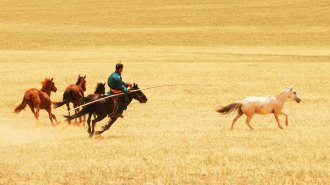 Genetics
GeneticsHorses may have been domesticated twice. Only one attempt stuck
Genetic evidence suggests that the ancestors of domestic horses were bred for mobility about 4,200 years ago.
-
 Science & Society
Science & SocietyScientists are fixing flawed forensics that can lead to wrongful convictions
People have been wrongly jailed for forensic failures. Scientists are working to improve police lineups, fingerprinting and even DNA analysis.
By Amber Dance -
 Genetics
GeneticsThomas Cech’s ‘The Catalyst’ spotlights RNA and its superpowers
Nobel Prize-winning biochemist Thomas Cech’s new book is part ode to RNA and part detailed history of the scientists who’ve studied it.
By Meghan Rosen -
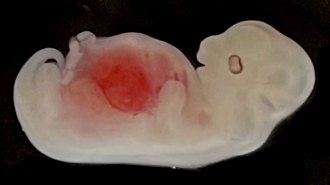 Genetics
Genetics50 years ago, chimeras gave a glimpse of gene editing’s future
Advances in gene editing technology have led to the first successful transplant of a pig kidney into a human.
By Abby Wallace -
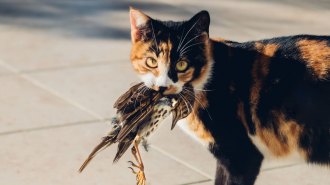 Health & Medicine
Health & MedicineBird flu can infect cats. What does that mean for their people?
Pet owners can take precautions to avoid H5N1, such as keeping cats indoors and making sure they don’t eat raw meat or milk.
-
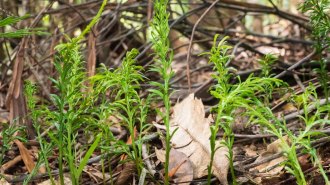 Life
LifeThe largest known genome belongs to a tiny fern
Though 'Tmesipteris oblanceolata' is just 15 centimeters long, its genome dwarfs humans’ by more than 50 times.
By Jake Buehler -
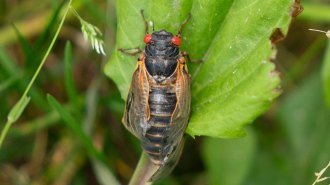 Life
LifeIt’s a big year for cicadas. Here’s what to know about this year’s emergence
Periodical cicadas are an odd marvel of nature. This year, the biggest brood of all is coming out in the U.S. South while another emerges in the Midwest.
By Susan Milius -
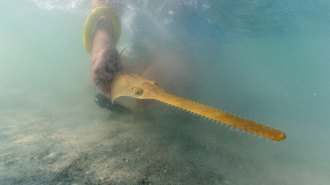 Animals
AnimalsA built-in pocket protector keeps sawfish from ‘sword fighting’ in the womb
What’s to prevent pups, with a snout that resembles a hedge trimmer, from slicing and dicing each other in mom’s uterus? Scientists have the answer.
-
 Health & Medicine
Health & MedicineMalnutrition’s effects on the body don’t end when food arrives
Children may struggle with inflammation, a weakened immune system and gut problems. New treatments may repair some damage.
-
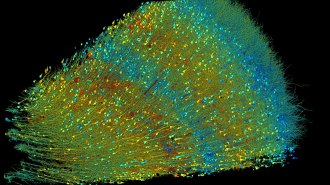 Neuroscience
NeuroscienceBiological puzzles abound in an up-close look at a human brain
Mirror-image nerve cells, tight bonds between neuron pairs and surprising axon swirls abound in a bit of gray matter smaller than a grain of rice.
-
 Neuroscience
NeuroscienceTwo distinct neural pathways may make opioids like fentanyl so addictive
A study in mice looked at how feelings of reward and withdrawal that opioids trigger play out in two separate circuits in the brain.
-
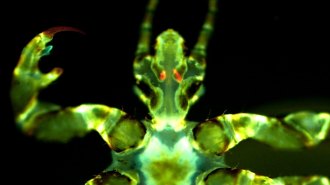 Health & Medicine
Health & MedicineHuman body lice could harbor the plague and spread it through biting
Rats and fleas previously got all the blame, but humans’ own parasites could be involved.